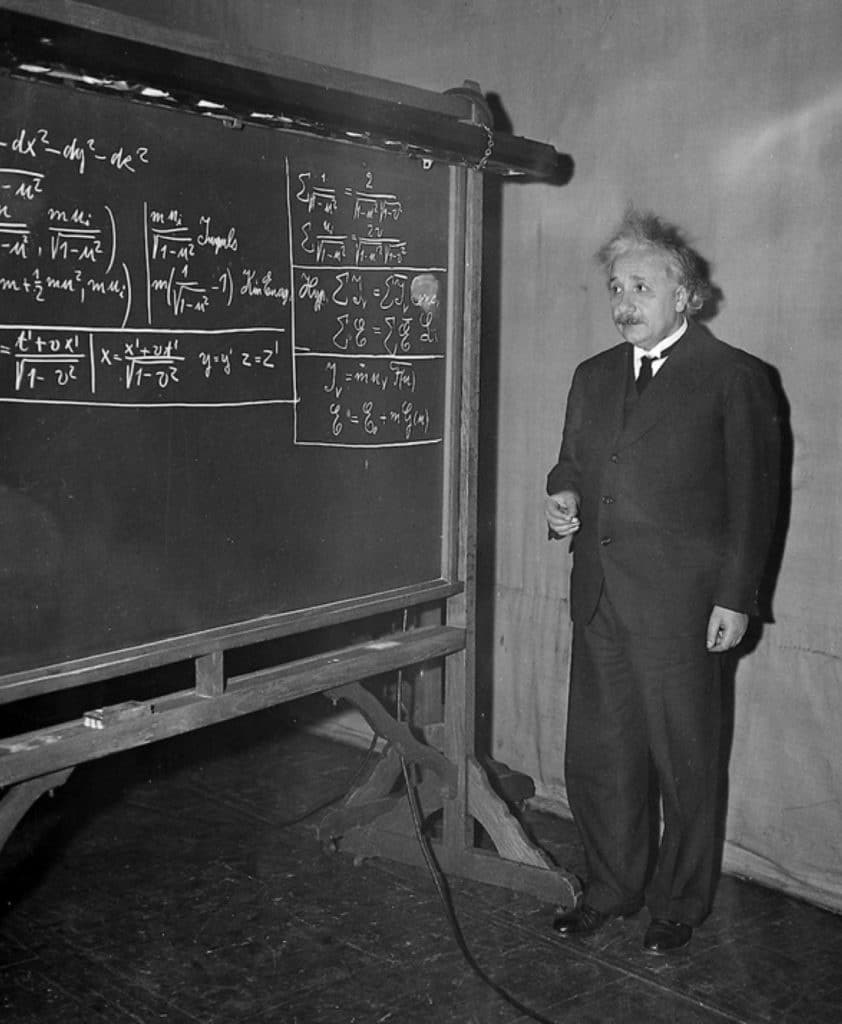
Actually, Einstein did ultimately receive a Noble Prize for Physics. It had eluded him for almost two decades after his annus mirabilis in 1905. Although he had been nominated several times from 1910 onward for his Theory of Relativity, the award was given each year to someone else. Finally, in 1922 the Nobel Committee informed him of his selection as the winner of this coveted award for 1921. However, the prize was not awarded for his Theory of Relativity, but for his discovery of the formula E = hν that describes the photoelectric effect.
There has been much speculation by historians of science about the reasons why he never received a Nobel Prize for Relativity–a work that esteemed scientists had hailed as one of the greatest human accomplishments. Science historian Robert Friedman captures a general consensus of historians in his assessment:
Swedish physicists with a strong experimentalist bias dominated the committee. They held precision measurement as the highest goal for their discipline.
When Einstein appeared on the scientific landscape in 1905, physics was predominantly experimental. Brilliant experimental designs like those of A. A. Michelson (invention of the interferometer), J. J. Thomson (discovery of the electron), and M. Curie (researches on radiation phenomena) won Nobel Prizes for their inventors. Theoreticians like Henri Poincaré and David Hilbert were considered hybrids, spanning the bridge between mathematics and theoretical physics, and were never recipients. However, when Max Planck won in 1918 and Einstein in 1921, it was clear that physics was gradually changing its orientation. Instead of beginning with experimental observations and constructing theories to fit the observations, Einstein had inverted the process, postulating theories from mathematical generalizations and then waiting for evidence to validate or destroy the theory. Physics was exploring domains beyond direct observation and the criteria for judging contributions to Physics was in transition.
The recipients of the Nobel Prize, are determined by the perspectives of the 5-member Nobel Committee who engage in an 8-month period of screening the nominees, and comparing their contributions. Furthermore, the criteria for a Nobel Prize differ significantly across disciplines, though the common thread is the measure of the contribution toward the betterment of humankind.
Noble’s will decreed that moral character not be a factor in the selection process, though the reputation of a person nominated for a Nobel Prize is a factor in the selection, since the process of vetting a nominee involves solicitation of opinions from those in the scientific, literary or economic community. Those who are perceived to be self-seeking may be less likely to be chosen. Mistakes in a scientific theory are irrelevant, as long as the final result is deemed successful.
There are many people who have made Nobel Prize-worthy discoveries in science, but were overlooked because the magnitude of their discovery was not evident during their lifetime, and the Nobel is not awarded posthumously. Furthermore, there are Nobel Prize-worthy people in non-Western countries whose discoveries were not recognized by mainstream scientific communities and who consequently, were never nominated for a Nobel.
Since the Nobel Prize is awarded based on the collective opinion of a committee, it is subject to all the errors in human judgement. Some people, such as Nassim Taleb (author of The Black Swan) suggest that there should be no Nobel Prize for Economics because the validity of economic theories is subject to opinion rather than observation. There is also significant criticism of the Nobel Peace Prize as a political instrument. In spite of its limitations, the Nobel Prize is invaluable as the ultimate award that celebrates human intellectual achievement, particularly as it promises improvement in the quality of life for all humans.
